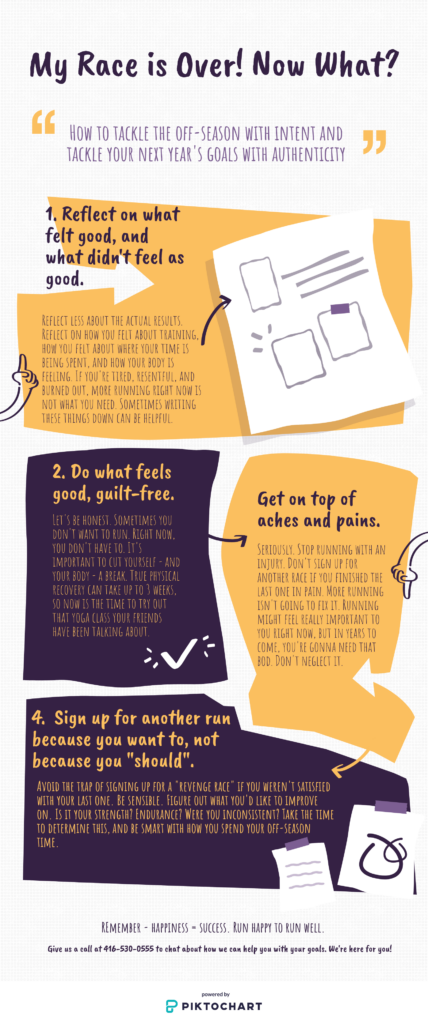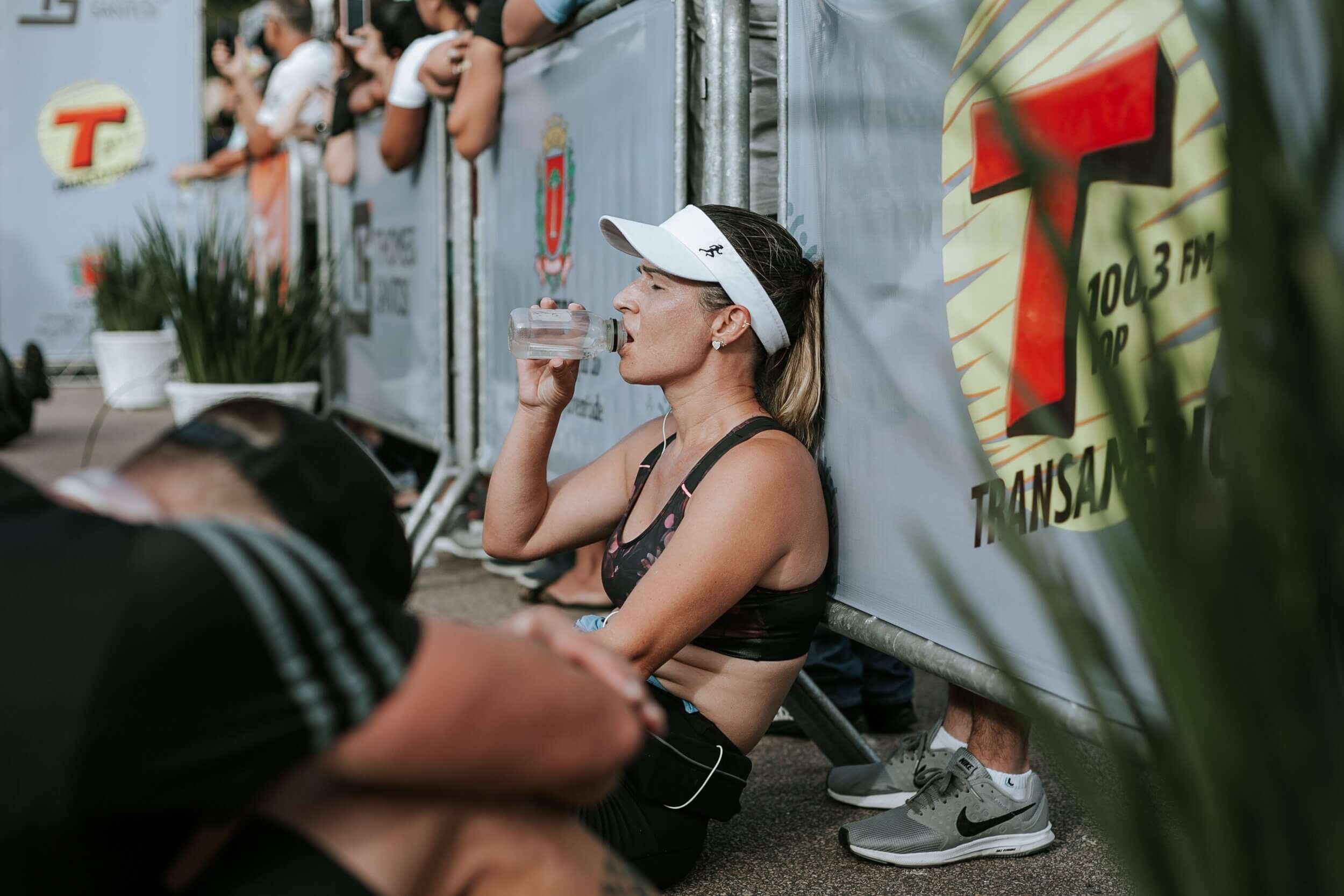Stairs are not your friend this week. But it is kind of fun when someone asks, “Are you ok?” when they see you painfully lunge out of a chair to answer with “Yep! I just raced this weekend and my legs are still super fried :)”
You started at the line, and you finished it. You put the training in, maybe you rehabbed an injury, but most of all, you put your mind to something and you did it. Finishing a race, no matter what the distance, is a huge accomplishment that deserves a few days - nay, a few weeks - to revel in. But sometimes after the shininess wears off, a sense of loss, or the sensation of “what next” can take over. Today we’re going to talk about how to navigate the next few weeks after your race to maximize your physical recovery, maintain your enthusiasm for sport and exercise, and how to best decide what your next steps should be. This stuff is really important, so important that we even created a shareable infographic to hammer the big points home.
TL;DR - Just hit up the infogram :)
Point 1. Don’t reflect too hard on the results (good or bad). Reflect on how you felt. It’s really, REALLY, easy to get caught up in minutes and seconds in the running world. What the clock says represents our performance, it’s how “good” or “bad” you did. Where things can get precarious is this can also represent our self-esteem and our feelings of self-worth and personal accomplishment or failure. But here’s the thing - it doesn’t actually represent you. Sure, it matters. Of course it matters. It matters if you’re gunning for a qualifying time, it matters when you’ve dropped everything over the last few months to run, run and run some more, but if you DIDN’T hit it - it’s still okay. As any experienced athlete, business owner, parent, or creative artist will say, you learn much, much more from what doesn’t work than what does. So rather than feel like a failure, objectively take a look on what went well and what didn’t. It’s fine to feel sad or let down by an outcome, but remember that you, YOU, are STILL AMAZING. Don’t let the clock take that away from you. Also, if during this time you’re feeling burned out and tired, then listen to this. Don’t sign up for something tomorrow, take some time to sort yourself out and feel energized again.
2. Do what feels good, guilt-free. Running and training, no matter the distance, takes commitment and discipline. It’s coming home from work and putting on gym clothes and lacing up shoes when you’d rather sit on the couch. Sure, you feel better when you’re done, but the initial effort requires a high dose of concentrated energy. Do you want to read a book when you get home from work? Go to a spin class? Do some yoga with a friend? Meditate? Now is the time. If these things make you happy, do them. Don’t push those feelings under the rug all in the name of running. PS - if you’re one of those people that says “Meditation is not for me, I can’t do it” - you probably need to meditate. ;)
3. Get on top of aches and pains. Ok. One more time for the people in the back. If you’re injured or dealing with something nagging, more running is not the solution. Get on these things. Figure out what the diagnosis is. Figure out what needs to happen to get it better. Sometimes (* cough * often) these chronic injuries can take some time to resolve (I’m looking at you, Achilles tendon problems). It can seem daunting to want to face and acknowledge this, but the more you know, the better you can get on it. Also, rehab isn’t terrible. It’s pretty fun here. We have cake or cookies or chips in our staffroom 96% of the time, and the front lobby Jolly Ranchers are on the house.
But really, STOP RUNNING INJURED.
4. When you’re ready, sign up for another run because you want to, not because you “should”. Have you ever done the “revenge race” sign up? It’s kind of like when you get dumped and hit the bar for a rebound. Obviously the rebound is not a good idea. We all know this. It’s got disaster written all over it. Yet we do it anyways, once or twice, and then decide that maybe we’re better than this. Same goes for racing. If you did poorly in a race, rather than rush out and try your hand at another one fueled by resentment, anger, and a need to “prove yourself”, maybe take a hot minute to sensibly figure out what went wrong. There’s a good chance that either injury, under- or over-training played into this - all of which are not going to immediately go away within a week or so for your Revenge Race. Stop. Just stop.
All in all, racing is awesome. It’s fun, exhilarating, and accomplishing. But give yourself a chance to come up for some air when you’re done, and remember that no matter how your race went or how close you came to your goals, you can continue to create the opportunities that can best serve the life that you want to be living.






